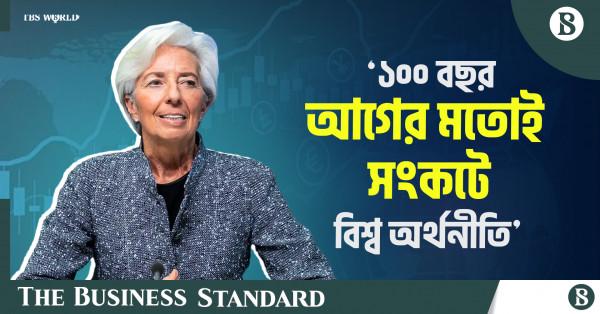- September 23, 2024
- Posted by: Regent Harbor Team
- Category: Global Economy

Certainly! Here’s a rewritten version of the article formatted as per your request:
Contents
World Economy in Crisis: Lessons from a Century Ago
The European Central Bank’s Perspective
The President of the European Central Bank (ECB) recently expressed concerns about the current state of the global economy, drawing parallels to economic conditions witnessed a century earlier. It’s a stark reminder of the cyclical nature of economic fortunes.
Historical Context
A century ago, the world experienced significant economic upheavals. The Great Depression in the 1930s and subsequent wars had disastrous impacts on global economies. The present-day economic crisis shows uncanny similarities with that era, not least in the sense of widespread financial instability.
Modern Economic Struggles
Today’s economy is facing a myriad of challenges. Issues such as inflation, unemployment, and slow growth are prominent. Additionally, the persistent impact of the COVID-19 pandemic cannot be overstated. Supply chain disruptions and labour shortages continue to trouble markets globally.
Comparative Analysis
| Economic Factor | 1920s-1930s | Contemporary Era |
|---|---|---|
| Major Event | Great Depression, World Wars | COVID-19 pandemic |
| Economic Impact | Massive Unemployment, Deflation | Inflation, Supply Chain Disruptions |
| Political Responses | New Deal, War Economies | Economic Stimulus Packages, Austerity |
Policy Responses
In response to these challenges, central banks worldwide are enacting various monetary policies. These include adjusting interest rates and implementing quantitative easing measures. The goal remains to spur economic growth and stabilize financial systems.
Inflation Concerns
Inflation is a primary concern in the current economic environment. Rising prices are eroding purchasing power and savings. Thus, central banks are under pressure to find a delicate balance between fostering growth and controlling inflation. Read more on inflation trends.
Global Interdependence
Globalisation has interlinked the fates of world economies more than ever. Economic policies in one country now have ripple effects across the globe. For instance, the US Federal Reserve’s decisions often impact international markets due to the dollar’s predominant role.
The Role of Technology
While technology provides some solutions, it also presents new challenges. Automation, for instance, offers efficiency but comes with concerns over job losses. Digital currencies, such as Bitcoin, represent both a potential future and a volatile present. Learn about the impact of digital currencies.
Future Outlook
Despite the challenges, there is room for cautious optimism. Innovation and concerted international efforts may carve a pathway out of crisis. Nevertheless, learning from the past remains crucial. The parallels with the previous century should serve as a cautionary tale, guiding current economic strategies.
Conclusion
In conclusion, the present-day economic crisis shares troubling similarities with past economic turmoil. However, modern tools and international collaboration provide a buffer against the worst outcomes. The key will be balancing immediate actions with long-term strategies to foster sustainable growth.
The European Central Bank and other financial institutions are at the forefront of this battle, striving to navigate through these stormy economic tides. Let us hope that history does not repeat itself in full and that we emerge more resilient than ever.
Please let me know if you need further improvements or additional information!
